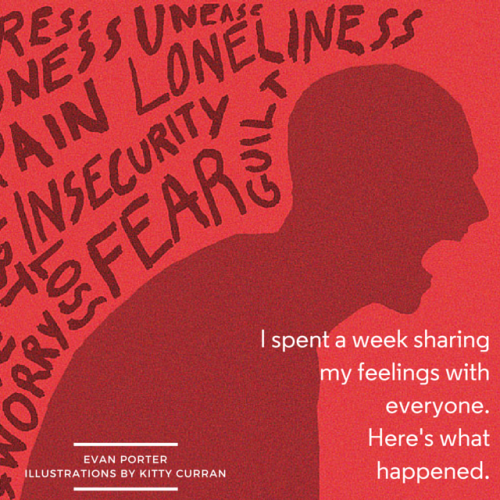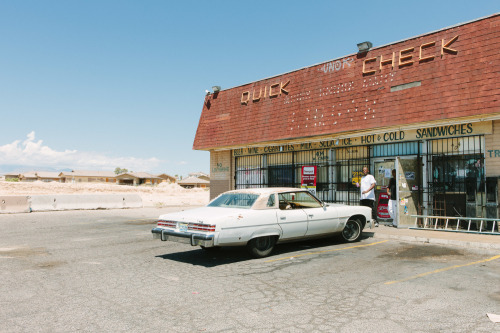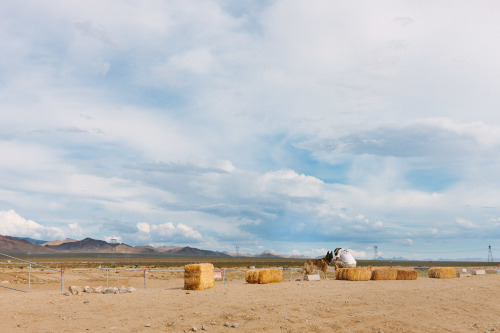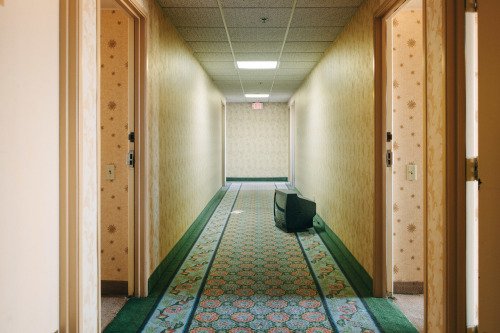#longform
The birds were gone. I went out of town for nine days, leaving the feeders empty for nine days, and the birds left. I filled them as soon as I got home: the birder’s deluxe for the scrub jays and oak titmouses, the hummingbird feeder for the Rufous and Anna’s, the thistle feeder just for the lesser goldfinches, the suet for whichever bird was willing to swing on it. I closed the deck door, went inside to the wooden swivel chair, and watched the feeders hang still. The birds had left. I had betrayed them.
I wondered how Jerry felt about birds.
*
“Can you guys be quiet for a second?”
We were driving from Beverly Hills back to work in Santa Monica in my pickup, me and two coworkers, laughing and gossiping, when my landlord called. He’s the only person whose number shows up as “Unknown” on my phone. I took the call on the stereo.
“Hi Jerry.”
“Oh! Hi there, Kelton.”
“What’s up?”
“Well now, you know, I don’t like to have to call. I know you’ve got plenty going on, and I don’t like to bother. And you know, I know the reason we live in the canyon is because we’re folk who like to keep to themselves. And you know, I like that. I appreciate that you do that. And I hate to ask, but well the truth is, I have a favor to ask and you can say no! I expect you to say no now if you don’t have the time, but if you’ve got the time, and you wouldn’t mind, I could really use your help.”
The girls giggled at his tone, his delivery. But the gargled diction of the elderly comes for us all.
“Sure. What is it?”
“OK, OK, well that’s sweet of you. And I appreciate you even saying you’ll help. Now what I need actually…”
He needed someone to pick up a prescription for him. He had just had surgery on his leg, and he couldn’t drive to the pharmacy. I said I was happy to pick it up. He warned me it cost money. I said that was fine, I had some money. He told me his gal, Tina, at the pharmacy knew I was coming, despite me just having agreed to this favor.
When I made it to CVS that evening, Tina was waiting for me.
“Did he tell you this medication was expensive?”
“He made sure I had money, but no, how much is it?”
“$343.”
“Wow. For how much?”
“30 days.”
Conveniently, I also had a credit card. I thanked Tina, and headed to the canyon, medication in hand.
Jerry is in his 70s or 80s. He won’t say his age. Every morning, I wake up at 7am to hear him turning his ignition on his old Volkswagen. The car hood latch broke last year, and was replaced by a contraption of wire and a stick to get it open. A Topanga hood ornament if I ever saw one. And every day at 7am, he drives to the YMCA and on Sundays, church. He’s lived on the property since the ‘70s, though it was built in the 1920s. If Zillow is to be believed, he bought the whole property for $57,000. The “zestimate” is now a cool million, up from $900,000 just last year.
On the property stands three structures, all a variation on “house.” Some better equipped than others, all wildly unpermitted and curiously built, as were most houses in Topanga until after the Northridge earthquake. Throughout the structures, character reveals itself to some, character flaws to others. A Swedish fireplace sits on a pile of bricks. A fire pole runs through all three floors, rattling in its bolts. One ceiling is a converted skateboarding dome. An Airstream sits locked in the driveway, locked to everyone but dust and its friends for 15 years. There is a massive 1950s refrigerator in the ground under one house that could have never conceivably fit through the door that leads to it. The fridge cannot be opened. More than five windows are simply broken glass held together by tape.
I live in the main house, Jerry lives in the guest house I used to live in, and his old shanty stands empty, save for his exercise bike. We did a little rotation when Jerry’s knees started to give out. It was too difficult for him to take the uneven steps of old railway ties down the cliff to his old home. The old tenant was evicted from the main house, Jerry ousted me from the guest house and into the main house, and he moved from the shanty with the skateboard dome roof to the guest house.
When I arrived at Jerry’s with the medication, I could hear from outside his wooden walls that he was on the phone. He frequently is. He doesn’t like guests, but likes company that ends whenever he says it has to. He says house guests are more complicated because they don’t leave for things like basketball tip-offs or bathroom trips. They expect to stay a while.
“Jerry?” I knocked once and then louder. “Jerry!”
“Oh is that Kelton?” I heard from inside. “Come in, come in! I’m upstairs, come on up!”
I pulled open the screen door I helped install. It didn’t fit. Nothing in Topanga did. A hook was drilled into wood of the doorframe, another into the metal of the screendoor. They barely reached, but it kept the most benign of the bugs outside. The mosquitos remain unbothered by the poor craftsmanship.
Have you ever walked into a home that’s no longer yours? To see it the way another person sees it? How they fill the air with smells intentional and not, and you can only say, “I like what you’ve done with the place” because the only other option is the silence of omission? But I did like the place. It suited him. Every surface belonged to things. Items stacked like cairns on the floor marking the path of a home for one. Even the oven served as a place to rest things, none of which were pots or pans. All across the 300 some square foot first floor, there were stacks of small pieces of paper on the shelves, the desk, on the table, phone numbers without names and dates without agendas. The kind of notes you make at home where you assume the house itself will keep the memory and information in tact. The kind of notes that look like garbage to everyone, including, at some indefinable date in the future, you.
I climbed the open, wooden stairs to the second floor to find Jerry on his bed. The bed is lifted, the spare space beneath filled with disorganized boxes and bins full of papers and other assorted items. The sheets are not dirty from the week, but from time. Pillows are items of function only, and Jerry is moving them around his body to position himself so he can get out of bed. Two days prior he had a knee replacement. When the doctors asked him if his place had stairs or any other challenges, he said no. He told me this as I helped lift his leg out of bed, touching the wax paper skin of a man I barely knew beyond writing his name on a check every month, as he failed to pretend it didn’t hurt.
Of course, I knew him better once. We had dinners. He met my parents. He checked on the cat when I left town. But then I chose to not know him at all. It was the weekend I moved from the guest house to the main house, vacating the guest house so Jerry could move in. I was living in the guest house with Ben, but he was out of town, and I moved everything by myself, save four pieces of furniture I hired two men from TaskRabbit to help with. They were city boys, afraid of the rickety stairs, the plywood floor covers, the steep slopes. I had to tell them to tie their shoes. But they never needed the traction; I carried the bed frame myself. I’ve never known when to ask for help. Ben came home that night, and he cleaned the old place so Jerry could move in the next day. I didn’t help. I was bitter about having been made to move an entire home’s worth of things alone on a schedule the two men had decided without me.
And then, the next day, in the morning when Ben was out training, Jerry saw me outside walking to my car, ready to drive to work, and he started to yell at me in the street. He called me a liar and a horrible person, his hands in the air. He said he should have never trusted us, that we took advantage of him. I could hear doors in the neighborhood opening, I could feel the blood in my ears and cheeks as I backed up and he continued to betray the space I was trying to make. We’d left the house in disarray, he said, ruined it, it was in shambles covered in old spills and untreatable stains. You need to fix this! Fix it now! I went over, because of course it was cleaned last night, wasn’t it? But the attempt at cleaning was cursory. I wouldn’t have moved into it. I began to clean if only to move the blood pooled in my cheeks. I would be late to work. And he continued to yell at me, calling me names, while I scrubbed the floor of his cabin at 8 am in my work clothes. I cried. Later, he would try to admit he had overreacted, but the damage was done. He’d shown a darkness I didn’t have the stamina for; I have seen before what angry men can do. We would not share more than brief hellos lobbied over the fence until a year later, when I was holding the weight of his leg in my small hands.
I made him show me he could get up and down the stairs, in and out of bed. I made him recite his medication requirements to me. I taught him how to look for potential blood clots: Is it swollen, but also painful? Is it hot to the touch? Do you promise you will call an ambulance? I cleaned the kitchen, took out the trash, and injury-proofed the house, rolling up loose rugs and moving stable pieces of furniture around to make lean-ons. And I held his swollen, heavy leg against my body while I flexed his reluctant knee. A physical therapist wouldn’t arrive for another three days; Jerry was two days late on both movement and blood thinners.
He doesn’t talk much about his past. There was never a wife, only a woman who gave birth to a daughter and left. The daughter is a flight attendant, and sometimes Jerry will join her longer flights. Father daughter time. She didn’t come home for the surgery. I don’t see photos of her, but there are photos everywhere. Under the piles of papers are piles of photos. There are sepia photos of all the jazz greats, aging slowly, buried away from the light, with Jerry, all 6’4” of him with the posture of youth, standing in arms with them, his drumsticks in hand. I make him show me he can do the stairs again. He rotates on the top step so he’s going down backwards, better to hold onto things. Once downstairs, he settles into the old chair across from the TV. There are no other seats.
“OK, now show me how you get up.”
“You’re quite the drill sergeant! This is why I never got married!”
I cross my arms, staring at him until he acquiesces and his struggle to return to standing becomes apparent.
“I can’t get this gosh-darned leg to bend.”
“Here, try this,” and I kneel in front of him, latching his stronger leg over the ankle of his wounded leg.
“Pull back on the ankle with your good leg to get it back to 90 degrees.”
“Wow, will you look at that! You’re more useful than you look!”
I smile and quickly stand.
“OK, it seems like you’ve got it covered now. Are you gonna be alright?”
“Yes, yes, I’ll be alright, you go on now, no need to be spending your evening with an old man. Go on.”
I step toward the door, and he reaches out, taking my hand. I flinch.
“Thank you. Thank you for helping me. I really don’t know what I would have done without you.”
“It’s no problem.”
“I’m just very grateful. And I want you to know that, OK? Thank you.”
***
The next morning, I would leave for New Mexico too early to check on him. I filled the feeders one last time before heading to the airport, peering out over the deck railing to see if any light was shining from his house onto the slope below. There was none. After landing, on the freeway from Albuquerque to Taos, I called him. He didn’t answer.
“Hey Jerry. Just checking in on that gimp leg. Give me a call when you get a chance. I’ll be back next Saturday. Try not to do anything risky until I get back.”
The desert would sprawl for several more hours. And a landscape of nothing would slowly reveal itself to be more complicated. Just over the embankments of asphalt valleys, the barren cruelty of the desert could be immediately interrupted by taking an exit off the path of least resistance. The more challenging roads, a bit out of the way, would show you New Mexico to be a place full of life, of greenery, of a river so grand its named as such.
Jerry would call later that day. He’d been watching a basketball game, on the phone with his daughter. He’d been making the most of my “hook the ankle” trick. He asked me about New Mexico.
“It’s OK, not really my kind of scenery.”
“The desert has a lot to offer, you know, if you can forgive the rest.”
***
I sat in my swivel chair for a long time that afternoon back from New Mexico. I’d made promises to these birds. Every day, they knew they could rely on me. I would sing to them and they would sing back, and we would watch each other as they emptied each feeder in a single day’s time. And then one day, I didn’t sing. And nine days later, neither did they. But I sat and I waited. No birds came that day.
The next morning, the feeders hung unbothered. I went to the deck and sang. I threw handfuls of seed to the ground below like I always did. I stood for a moment, watching. No one came. I had to leave for work.
When I came home that day, I went immediately to the feeders. There was no one there. But there was something: the main feeder, a ten inch column, showed a gap in the seed from the top. Not much was gone, but it was more than the wind could take on its own. There was a rustle in the branches. At 6pm, there was never much bird activity, but I could see her ruffling her feathers — a house finch, a dusty brown boring bird, fluttering in the oak, and I sang to her. I sang to myself.
*
We are folk who like to keep to themselves, because if we are not those people, then we are forced to acknowledge the loneliness. I heard a neighbor once, in a fight with a renter on the property next to his, yell, “this is Topanga! It means don’t come here!” I’ve never met him. I avoid eye contact when he’s outside, and so he does the same. We bury the pain of people respecting our wishes with fences and downward glances and unnatural phone calls. We say we like it for the nature, for the peace, but nature and peace are nothing but a respite from people, from our kind and our kin.
I feel lonely more than I am meant to. Sometimes I think of all the people I’ve known, all the secrets I’ve heard on late night walks home from the bar, all the confessions and heartbreaks and hopes yet to come true. All the people who leaned on me that I would eventually leave for another city where no one would know me.
I know now how long I’ve been averting my gaze. I have built a house full of scraps, numbers without names, dates without agendas. But the house has kept them in tact. I can feel the reasons and the rhymes. I can feel how badly I want to remember. And with curiosity, with the smallest amount of nourishment, I can find something where there was almost nothing. Things long gone brought back. Things that seemed so far away, so completely out of reach, they could, should I choose to try, to be patient, come back to me.
And, through all the damaged, abandoned stories, I can come back, too.
If I can start slowly and small.
If I can reach for someone’s hand.
If I can stand, barefoot on the wood, looking into the trees.
If I can bring myself to sing — someone, somehow, might sing back.
*
“Hello?”
“Hey Jerry.”
“Kelton? Is that you? Well, hello! To what do I owe the pleasure?”
“Just checking in. How’s that gimp leg?”
“Well, now, let me tell you what I learned to do today—”
I leaned back in the chair, counting the birds.
If you liked this piece of writing, reblog, or get the next one straight to your inbox. Written while listening to “Out of Order” by Highasakite, “Space” by Shae Jacobs, and “Waiting for You” by The Aces.
hi. today i am starting a new season of IN A WALLED CITY with a big episode called The Historian. this is one of the more challenging, personal, and ambitious audio fiction projects i have ever done. it is narrated by my friend and longtime collaborator Valerie Monique Evering
you can listen to it for free at all the usual podcast places. if you want to support the show financially you can also buy it on my bandcamp. there is a link to a transcript in the show notes. its also on bandcamp in the lyrics section.
the story in this episode is one i started writing before any of the others. as a reminder, the show is nonlinear and you can dive in at any point. and this episode, in spite of its length, is a good entry point. its a bit more direct.
its a story that had been kicking around in my head for years as something i would “do someday”. the impetus to actually make it for real was listening to the Start With This podcast by Night Vale Presents - i highly recommend it if that kind of situation applies to you!
i have been through a lot since i started writing this one. its hard to describe the place its come to inhabit in my head and heart. at times i was certain i would never publish it. but ive put so much into it & even if that energy doesnt return in forms i expect, now is the time.
•
I’ve left a trail of bodies in my wake ten miles wide. I think I’ve said ‘goodbye’ more times than I’ve said ‘hello’ and I’ve said ‘I love you’ a thousand times more than I’ve heard it.
I wish I could write this to you, but I don’t know who ‘you’ is anymore because the list is too long. If you read this, and your heart sinks for a second and says ‘ouch’, that’s the feeling of a pen writing your name somewhere you would rather erase it from.
Im sorry if it hurts, but there’s a reason you need to know. Are you ready?
Because I’ve done it too. I’ve hurt people in the same ways they’ve hurt me. Maybe even you. And there’s something to be learned from that.
In life, the person who takes the blame for pain, suffering, wrong-doing. It’s whoever did it last, because memory is so very shallow.
You hurt me. I hurt you. Look, I can’t stop that. I’m only human. But if I ever see a Coke with your name on it, I’ll share it with you. I hope you’ll take it.
________________________________
#zackgrey #goodbye #hello #iloveyou #prose #quotable #coke #poetry #longform #quote (at Rehoboth Beach, Delaware)
Post link
Above, an alternate angle of the Tiananmen Square “Tank Man."
Amazing story by journalist Terril Yue Jones (who took the photo) about what it was like to report from Tiananmen Square in 1989. An excerpt:
A day after the People’s Liberation Army stormed into central Beijing on June 4, 1989 and retook Tiananmen Square from protesters who had occupied the vast plaza for much of the previous six weeks, I stood outside the Beijing Hotel just east of the Square. A frightening pall had settled over Beijing, broken almost hourly by cacophonous volleys from soldiers’ automatic weapons, often aimed at the crowds of onlookers.
People would scatter, but some were hit and quickly carted away by flatbed tricycles. Inevitably, the pressing internal Chinese drive of kan renao, or checking out what is going on, would overcome them and they would return to gawk at the soldiers and hardware that had rolled through their city.
At one point, tank engines could be heard approaching from the Square. Gunfire emanated again, and people fled away from the boulevard. I saw people running and tanks approaching. I lifted my camera, took one photo and scampered away myself.
Only months later did I discover that I had captured an alternate view of one of the most dramatic moments of those weeks: the man with the shopping bags who stopped a line of tanks, which many saw as standing up to dictatorial rule. He came to be called the “Tank Man.”
More from WQ here.
Post link
FEAR AND SELF-LOATHING IN LAS VEGAS
Exactly three years ago, Sasha Frere-Jones — then the culture editor at The Daily — sent me and reporter Zach Baron to Las Vegas. Our mission: to follow in Hunter S. Thompson’s footsteps 40 years later, and report on what happened to the American Dream in the intervening years.
Our piece — which previously disappeared into the Great Cache in the Sky along with The Daily — has been resurrected on Longform.org, along with tons of previously unpublished photos.
It’s a long read — as good reads often are — so grab a drink, plop yourself in a cushy chair, and enjoy our stories of fear & self-loathing: http://reprints.longform.org/fear-and-self-loathing-in-las-vegas-zach-baron
Post link












